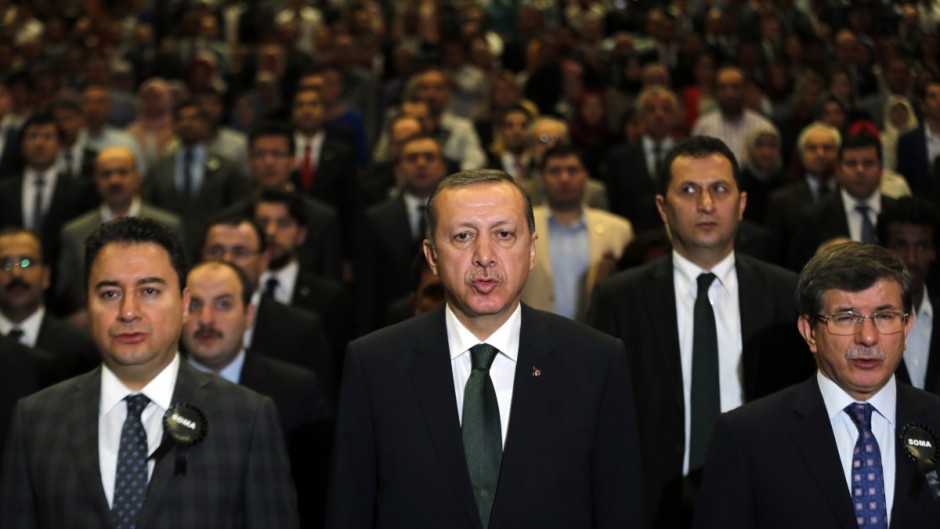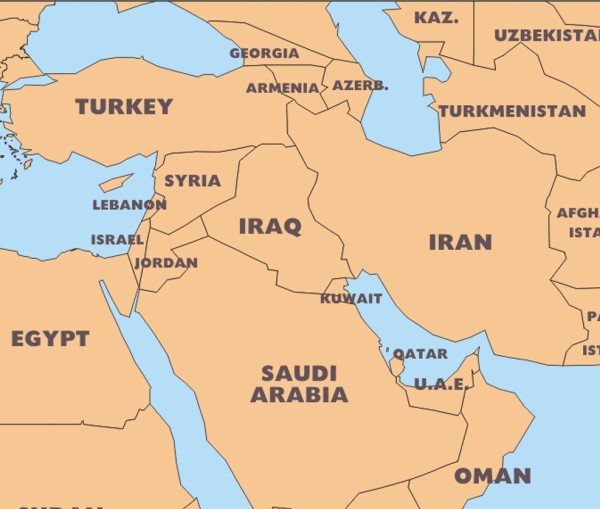Turkey’s Islamist leadership, led by President Recep Tayyip Erdogan and Prime Minister Ahmet Davutoglu, seems intent on burning its bridges with Israel, once a valued ally.
In recent months, the pair have stepped up their diatribes against Israel so as to burnish their anti-Israel credentials and consolidate Turkey’s standing and status in the Muslim world.
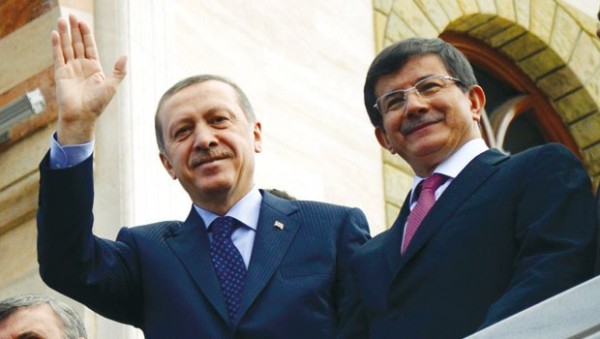
Israel has not remained silent in the face of these barbs. Late last year, in a tangible sign that Israel’s alliance with Turkey has definitely crumbled, the Israeli government accused Turkey — the sole Muslim member of NATO — of allowing Hamas to plan attacks against Israel from its territory. Turkey denied the accusation.
Defence Minister Moshe Yaalon charged that Hamas maintains command centers in the Gaza Strip, which Hamas has ruled since 2007, and in Turkey. Yaalon alleged that Hamas cells in the West Bank had been planning terrorist operations under the guidance of Saleh al-Arouri, who was deported to Turkey from the West Bank in 2010.
Turkey’s bonds with Hamas came under withering scrutiny as well when Khaled Mashall — a Hamas leader who was the object of an Israeli assassination attempt in 1997 — delivered a speech in Turkey last December during which he expressed the hope that the Palestinians, in conjunction with Turkey, would “liberate Palestine and Jerusalem.”
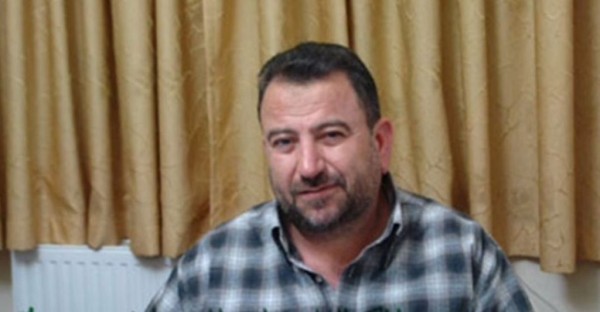
To no one’s surprise, Turkey’s incessant and indiscriminate verbal volleys aimed at Israel have had a devastating impact. They have further embittered mutual relations between two former allies and greatly diminished the chances of mending a relationship that has been in free fall since Israel’s invasion of the Gaza Strip in 2009 and the Mavi Marmara affair a little more than a year later.
As a result of these developments, Turkey — the first Muslim nation to recognize Israel — has drastically curtailed diplomatic and military relations with Israel, thereby ending a golden era in Turkish-Israeli ties that began in the mid-1990s.
Two years ago in March, Turkey and Israel appeared to be on the brink of normalizing relations. Thanks to mediation efforts by U.S. President Barack Obama, Israeli Prime Minister Benjamin Netanyahu phoned Erdogan, then Turkey’s prime minister, and categorically told him that Israel was finally ready to give in to two key Turkish demands in order to restore the status quo ante.
First, Israel would apologize for the incident during which Israeli commandos boarded the Mavi Marmara and killed eight Turkish nationals and one American citizen of Turkish descent. As will be recalled, the Mavi Marmara was a Turkish ship in a flotilla of international vessels trying to break Israel’s naval blockade of the Gaza Strip, which Hamas seized from Fatah in a violent coup.
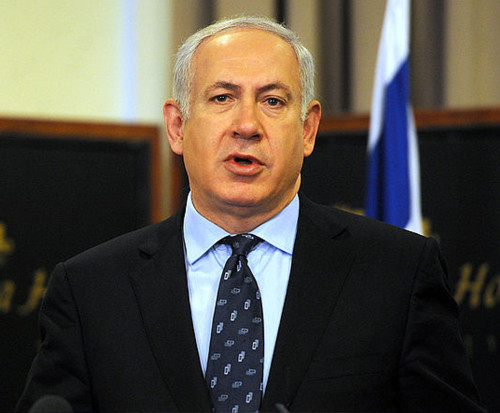
Second, Israel would pay compensation to the families of the Turkish victims who had been aboard the Mavi Marmara when it was stormed by Israeli troops.
A third issue, Israel’s continuing siege of Gaza, was left on the back burner until the first two issues could be completely settled.
Unfortunately, Turkey’s budding rapprochement with Israel screeched to a shuddering halt last July after Israel went to war with Hamas yet again. As usual, the hostilities were initiated by Hamas and Islamic Jihad, which call for Israel’s destruction and its replacement by an Islamic state.
Erdogan, who had already positioned himself as the most outspoken critic of Israel in the Muslim world, predictably denounced the Jewish state. “Israel is continuing to carry out state terrorism in the region,” he said, rehashing an accusation he had levelled in 2009 following Israel’s incursion into Gaza in reaction to Palestinian rocket bombardments.
And in a historically crude comment, Erdogan — a keen supporter of Hamas — claimed that Israel’s offensive in Gaza had “surpassed Hitler in barbarism.”
As last summer’s war dragged on, Erdogan jumped on the anti-Israel bandwagon once more. As he said, “This is not the first time we have been confronted by such situations. Since (the creation of Israel) in 1948, we have been witnessing this attempt at systematic genocide every day and every month.”
While verbally abusing Israel at every turn, Erdogan neither criticized Hamas’ deplorable “human shield” tactics nor lambasted its calculated rocket assaults on Israeli towns and cities.
Erdogan’s rants have been in keeping with his consistent record of hostility toward Israel.
Lest we forget, he has likened Zionism to antisemitism and fascism, accused Israel of killing children, and blamed it for the ouster of Egypt’s Muslim Brotherhood president, Mohammed Morsi, who was deposed and arrested by the current president of Egypt, Abdel Fattah el-Sisi.
Erdogan, who has blatantly used the Israeli card to expand Turkish influence in Arab countries, has lately been bashing Israel again.
Last month, he took a swipe at Netanyahu for having dared to attend a rally in Paris in solidarity with the Charlie Hebdo journalists killed by two French citizens of Arab origin. As Erdogan said, “What do you think of Netanyahu, who has been waging state terror by massacring 2,500 people in Gaza …?”
Erdogan’s colleague, Davutoglu, chimed in with inflammatory remarks of his own, claiming that Netanyahu and the gunmen who had terrorized Paris were equally guilty of “crimes against humanity.”
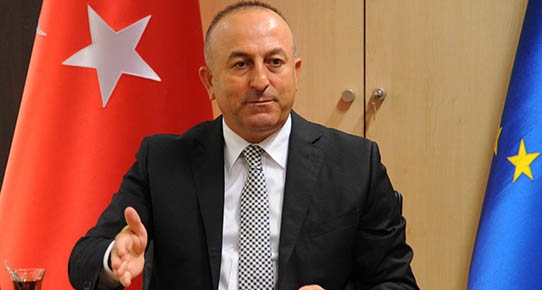
On Feb. 6, Davutoglu’s successor, Foreign Minister Mevlut Cavusoglu, announced he would boycott a security conference in Munich because an Israeli cabinet minister would also be in attendance. “I was going to participate in the conference,” he explained, “but we decided not to after they included the Israeli representatives in the Middle East sessions.”
More ominously, perhaps, Turkish accusations against Israel have veered into the realm of antisemitism. On January 31, Erdogan accused his political opponents — the “parallel structure,” as he has described it — of colluding with the Mossad to topple him.
Several days ago, Davutoglu dutifully declared he would stand up to the “Jewish lobby” and other forces that are supposedly trying to undermine his government. As he put it, “I announce it from here: we have not and will not succumb to the Jewish lobby, the Armenian lobby or the Turkish-Greek minority’s lobbies.”
In light of these outrageous statements, I have reason to believe that Turkey is simply no longer interested in normalizing political relations with Israel. (Israel’s booming commercial ties with Turkey have not been affected by their escalating war of words).
I usually disagree with Israeli Foreign Minister Avigdor Liberman’s perception of events, but he may have been right when he recently observed that Turkey wants to keep its relations with Israel in the deep freeze. As Liberman said, “As long as Turkey is being led by its current leadership, under President Recep Tayyip Erdogan and his friends, rehabilitating Israel-Turkish ties stands no chance.”

He added, “Turkey under Erdogan is a country only interested in attacking and taunting Israel, and we must react accordingly.”
Under the current circumstances, regrettably, it would be virtually impossible to refute his pessimistic analysis.
